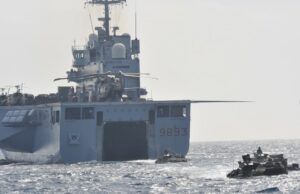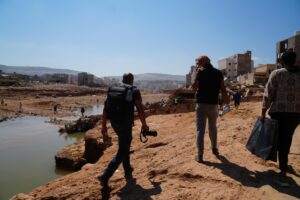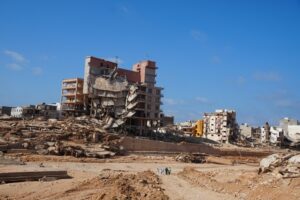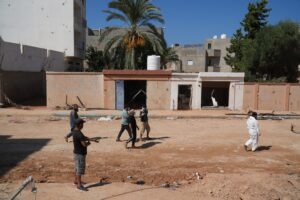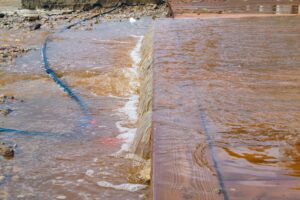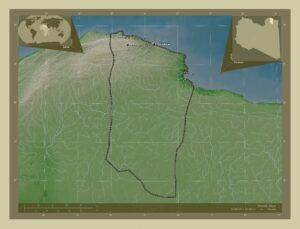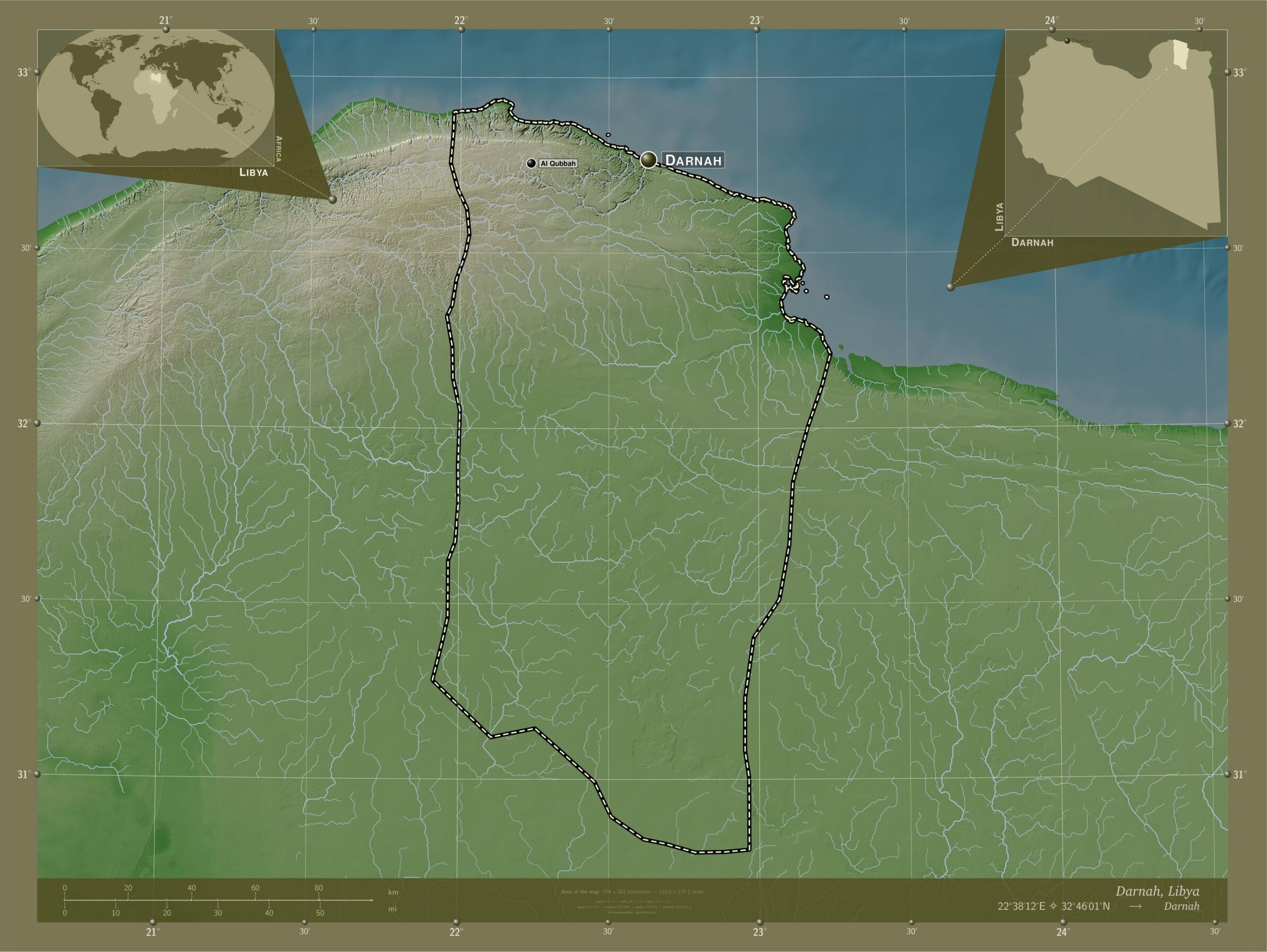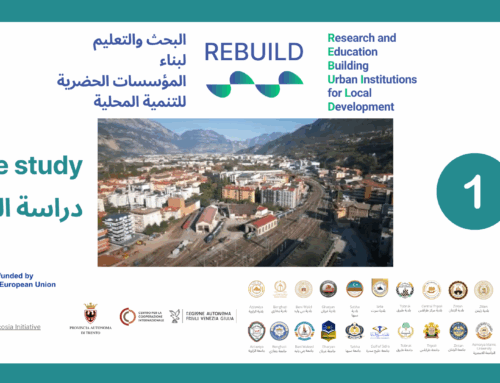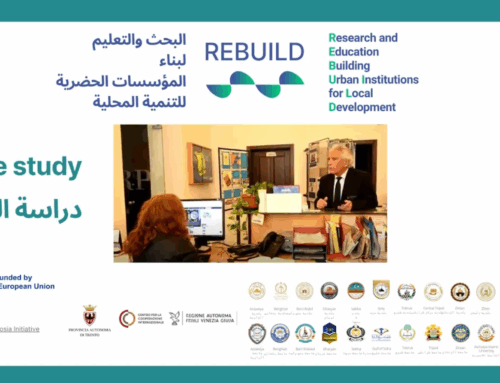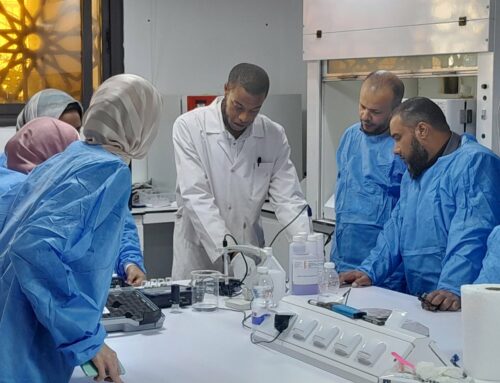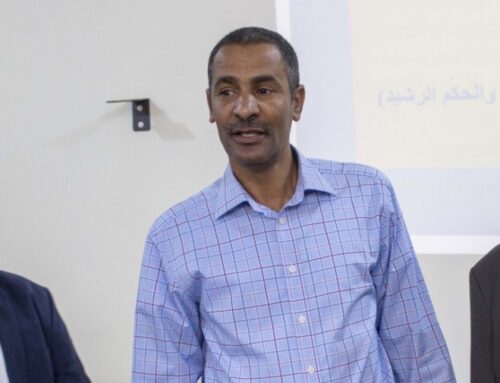It has been 15 days since the flooding triggered by Hurricane Daniel on the coast of the Cyrenaica region. 120 million cubic meters of water were released from the collapse of the two dams upstream of the city hardest hit by the storm: Derna.
In its path, the water turned into mud and ran over roads, bridges, buildings, homes, and hospitals. The city was submerged under a meter of mud.
In the chaos of the days following the Sept. 10 flooding, there have been reports of thousands of deaths, the death toll of which continues to change and reached 11,300 a few days ago, compared with more than 10,000 missing and 43,000 homeless in Derna, a city of artists and poets, which had a population of about 120,000 before the flood.
The death toll is high even among rescue workers. Among the displaced are 17,000 school-age children, many of them orphans, who these days started school in tents, the buildings having been destroyed or used to house the displaced.
Thousands of bodies everywhere: to date, those on the roads have been recovered, but the recovery of many of the bodies still trapped in houses and cars dragged into the sea and those under rubble in the mud remains urgent. The material and moral damage is devastating. The need to honor with appropriate funeral rites the innocent victims of this tragedy has no place and is supplanted by the priority of avoiding epidemics resulting from pollution for the thousands of dead still unrecovered.
Among the buildings that collapsed were also medical facilities, replaced by field hospitals.
Primary resources such as drinking water, food and energy are lacking. Many roads have been unusable, slowing the arrival of relief efforts. There is a lack of excavators to remove rubble and search for the missing. There is a lack of plastic bags to store victims.
There is a lack of skills to deal with a situation of this magnitude:
- organizational and planning skills useful in the immediate term to deal with the emergency
- medium-term technical skills to rebuild and strengthen civil infrastructure to prevent future damage and safeguard residents
- long-term strategic skills to protect against natural disasters and find an optimal balance between people and land.
International aid, important today, has been slow to arrive as the tragedy has been underestimated by international communication, as well as because of the clogging of access routes to the city of Derna and through the affected areas in the Gebel Akhdar (Green Mountain) region.
Contrary to the slow response of international aid, the domestic response among Libyan municipalities has been, and is, exceptional. Caravans of basic necessities and volunteers have departed from many cities, even the most distant ones. Libyan solidarity from below overcame any political divergence to make way for unconditional cooperation.
Many surrounding municipalities have offered homestay hospitality to those displaced from the flooded areas.
Partners in the REBUILD project – Research and Education Building Urban Institutions for Local Development (Azzawiya, Benghazi, Beni Walid, Gharyan, Sebha, Sirte, Tripoli, Tobruk, Zintan, and Zliten) have been active and have maintained constant contact and internal communication and with potential external resources. They conveyed and coordinated various requests for help, in some cases traveling to Derna to gather information directly on the ground and consequently be able to better organize interventions.
In response to the request by the Libyan national authorities, the Italian National Civil Defense Department first sent a needs assessment team consisting of personnel from the Department itself, the Fire Brigade and the Interforce Summit Operations Command, and then various support measures across the Mediterranean Sea via the Navy’s San Marco ship: earth-moving and rescue vehicles, 2 Italian Defense helicopters, 100 tents complete with cots and sleeping bags capable of accommodating 1. 000 people, about 5,000 blankets provided by the Italian Red Cross, 8 water pumps and 30 pallets of medical supplies.
The Civil Protection Department has remained in close and constant liaison with the Italian team on the ground and with Regions, Autonomous Provinces and operational structures for the reconnaissance of needs and activities in support of the Libyan populations affected by the floods.
As of Sept. 17, there were about 480 Italian personnel engaged in the territories affected by the emergency among the Civil Protection Department, the National Fire Department and the Armed Forces, in addition to diplomatic representatives of the Ministry of Foreign Affairs and International Cooperation already on the ground.
An Italian, an Air Force lieutenant colonel serving in the Civil Protection Department, has been appointed team leader, that is, to head the European Civil Protection Mechanism team that coordinates the assistance provided by European Union member states, ensures contacts with the United Nations and identifies all areas of possible intervention by the Union Mechanism, in support of the Libyan authorities.
With an outside perspective, but with human involvement, focusing on the 10 partner municipalities of the REBUILD project (Azzawiya, Benghazi, Beni Walid, Gharyan, Sebha, Sirte, Tripoli, Tobruk, Zintan, and Zliten), the hope is that the tragedy will be transformed into an opportunity to rethink priorities and reinforce their competencies to protect Libyan citizens. Alongside actions to deal with the emergency, we need attention to prevention activities and stable, forward-looking strategies that benefit the common good and balanced development of the territory.
